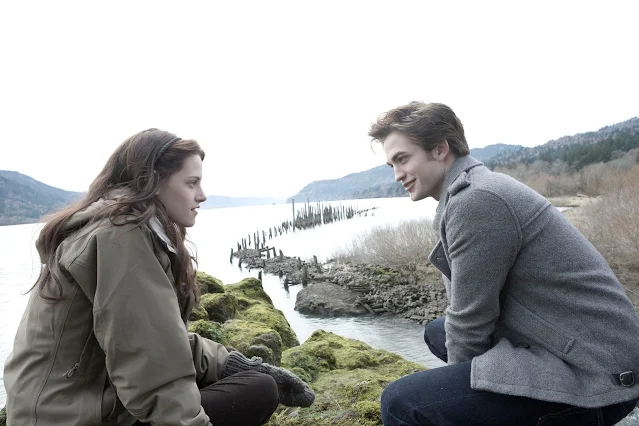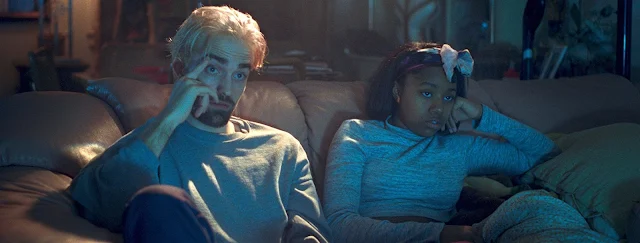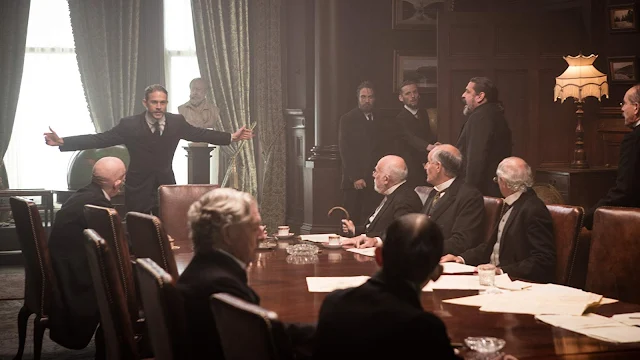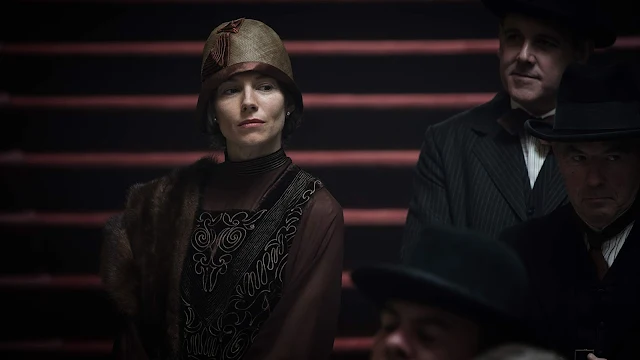 |
| Robert Pattinson in Mickey 17 |
Cast: Robert Pattinson, Naomi Ackie, Steven Yeun, Mark Ruffalo, Toni Collette, Patsy Ferran, Cameron Britton, Daniel Henshall, Steve Park, Anamaria Vartolomei, Holliday Grainger. Screenplay: Bong Joon Ho, based on a novel by Edward Ashton. Cinematography: Darius Khondji. Production design: Fiona Crombie. Film editing: Jinmo Yang. Music: Jung Jae-il.
Bong Joon Ho's Mickey 17 is carpet-bomb satire, spread out over so many social, political, scientific, and theological targets that it's bound to hit all of them but inflict no lasting damage on any of them. What it has going for it is a watchable cast, starting with Robert Pattinson, who adds to his reputation as one of our most versatile young actors. Pattison is Mickey Barnes, whom technology allows to essentially live forever as a succession of Mickeys who die and get reborn. By the time the film starts, he's Mickey 17, an "Expendable" on a voyage to settle a new planet. He's essentially a guinea pig, sent out to test whether humans can survive the new environment. Each time something on the planet, such as a virus, kills him, he's re-created out of something like a 3-D printer and his previously stored memories are replaced so he can go out again, after the scientists on-board have discovered a cure or preventative for what killed him. That's the principal set-up, but Bong has more twists to Mickey's story in line. The captain of the spaceship, for example, Kenneth Marshall, is a wealthy politician out for glory. He's played well over the top by Mark Ruffalo in a performance that evokes several contemporary egomaniacs with more money and power than scruples and common sense. And the planet is inhabited by creatures that look like large pill bugs; they turn out to be intelligent beings, setting the plot up for a showdown with the blustering Marshall. It's a darkly funny movie that reflects Bong's somewhat jaundiced view of humankind.


























































